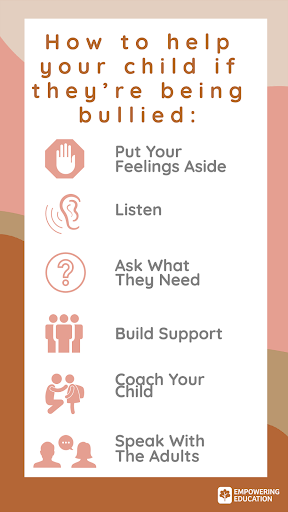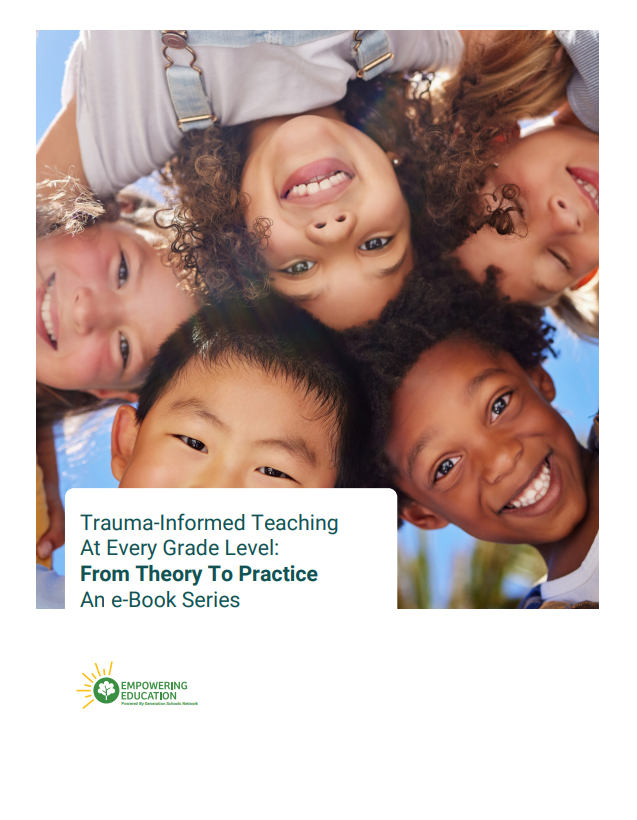What Should I Do If My Child is Being Bullied?
A Guest Post by Cristin Howard
If you know or suspect that your child is being bullied, it can stir up many emotions. A lot of parents feel a desperate need to do something to help their child. Bullying is a situation that needs to be handled with care. Taking the wrong actions can sometimes be as bad as taking no action at all.
Here are some tips to help you support your child if they are a victim of bullying.
Put Your Feelings Aside
Hearing that your child is being bullied can bring up a lot of feelings for you as a parent or caregiver. It’s totally normal to feel angry, scared, frustrated, and even like you’ve failed. It’s all normal. If you were the victim of bullying as a child, you might also be reliving past traumas.
But, this is about your child, not you. Sorry to be blunt, but it’s vital that you remind yourself of that before you say or do anything. What you’re feeling isn’t going to help your child. By all means, vent to your partner, therapist, friends, whoever you need to. But, when you’re dealing with your child and their school, keep your feelings out of the equation.
Listen
The first thing you need to do is really listen to your child. Ask them about what’s been happening. Try to find out who was present, what was said, how your child reacted. While you’re asking questions, try not to be judgmental. You’re just trying to get a full picture so that you have the information you need to move forward.
Your child will need to feel heard. So, as part of listening to them, it’s good to repeat back a summary of the key points. This helps you clarify the information and lets them know you’re hearing them.
If you need to, it can help write down some notes after you’re done talking. It can be useful to have details if you need to get the school involved.
Get The Full Lesson
Empowering Education offers full lesson plans for teachers on teaching kids how to handle bullying.
Ask Your Child What They Need From You
Being bullied makes you feel powerless. So, swooping in and telling your child what you’re going to do doesn’t necessarily help. An excellent place to start is asking your child what they need from you.
If it’s infrequent verbal bullying from a small number of other children, then your child might just want advice on how to deal with it, and the opportunity to talk to you.
If it’s more severe and you need to take action, you should talk through what you’re going to do and why with your child. Let them feel involved in the solution, so they can get some of their power back.
Build A Support Network For Your Child
One of the hardest parts of being bullied is the feeling of isolation. There are ways you can help your child to deal with these tough emotions.
Try and find an extracurricular activity that they enjoy. There are two significant benefits to this. First, it allows your child to do something that makes them feel good and can build their confidence. Second, it provides an opportunity for your child to build friendships outside of school. Clubs such as sports teams, church youth groups, or theater guilds, give your child friends and support, separate from their bully.
You can also help your child feel less alone by finding books written about bullying victims. There are some great digital reading libraries filled with lots of options. The other great thing about a digital reading library like ReadingIQ or Epic! is that reading can offer hope to your child. It can become a source of strength for the difficulties they’re going through.
Coach Your Child
Once you’ve started talking to your child about what they’re going through, you can begin to ask them about how they reacted. Again, you should try to do this without judgment. You can try asking questions like, “And then what did you do?” and “How did they react to that?”. You want to lead by example and show responsive decision making, rather than emotional reactions.
You can brainstorm ideas on what they can say and do together. The best option for your child is to stay calm, to leave the situation as quickly as possible, and get help if they need it.
It’s also important to educate yourself and your child on how to be safe online. With social media, bullying doesn’t stop at the school gate anymore, so you need to help your child stay safe online as well.
Speak With The Adults
If your child is regularly being the victim of taunting or teasing, you should speak to the adults in charge. When you do so, you need to be straightforward about the problem. You should state what is happening, when, where, who is involved, and its effect on your child. Leave the solution up to the school - students’ safety is their responsibility. However, if things don’t improve, make sure to follow up. Never try to confront the bully or their parents. It will only make things worse.



